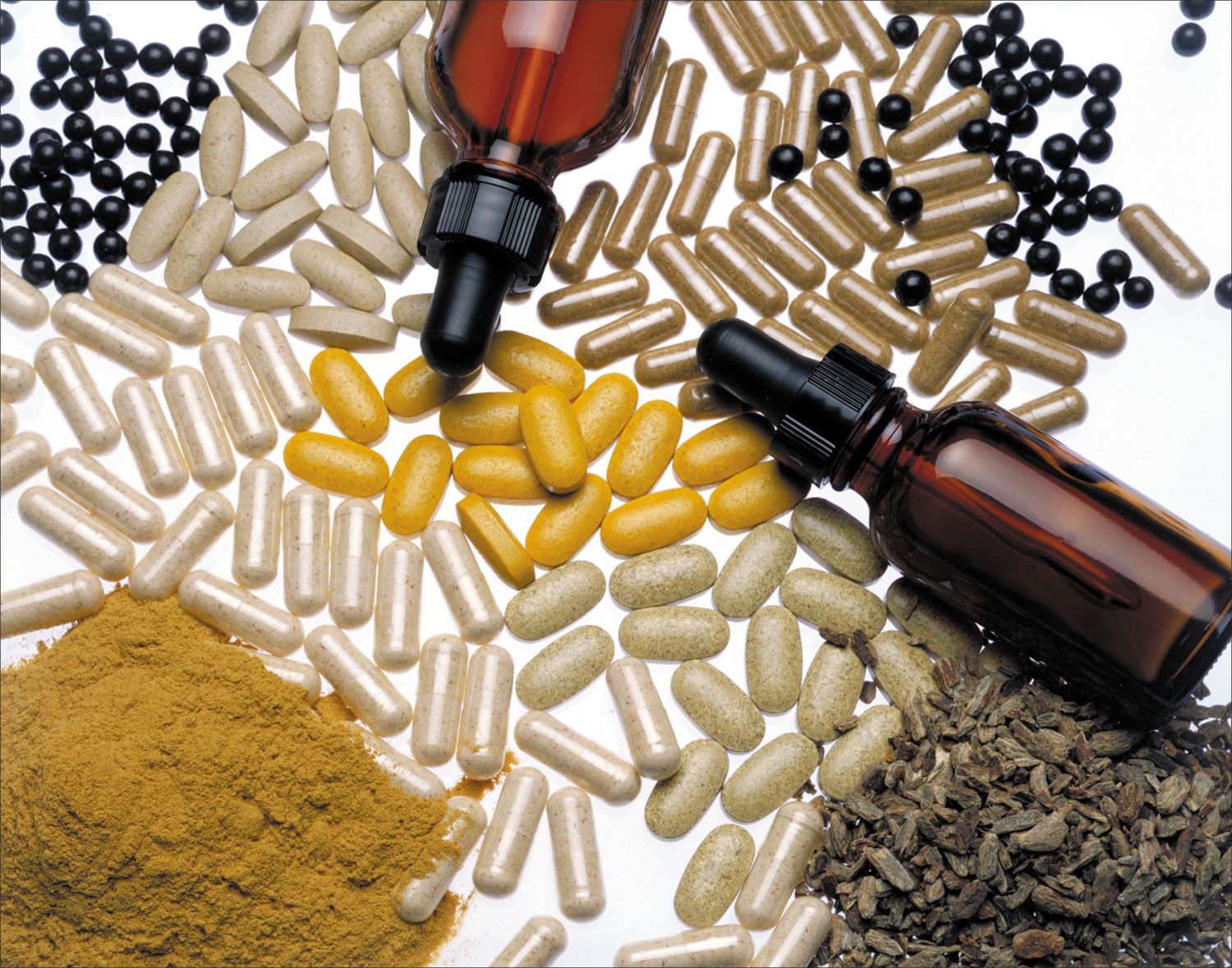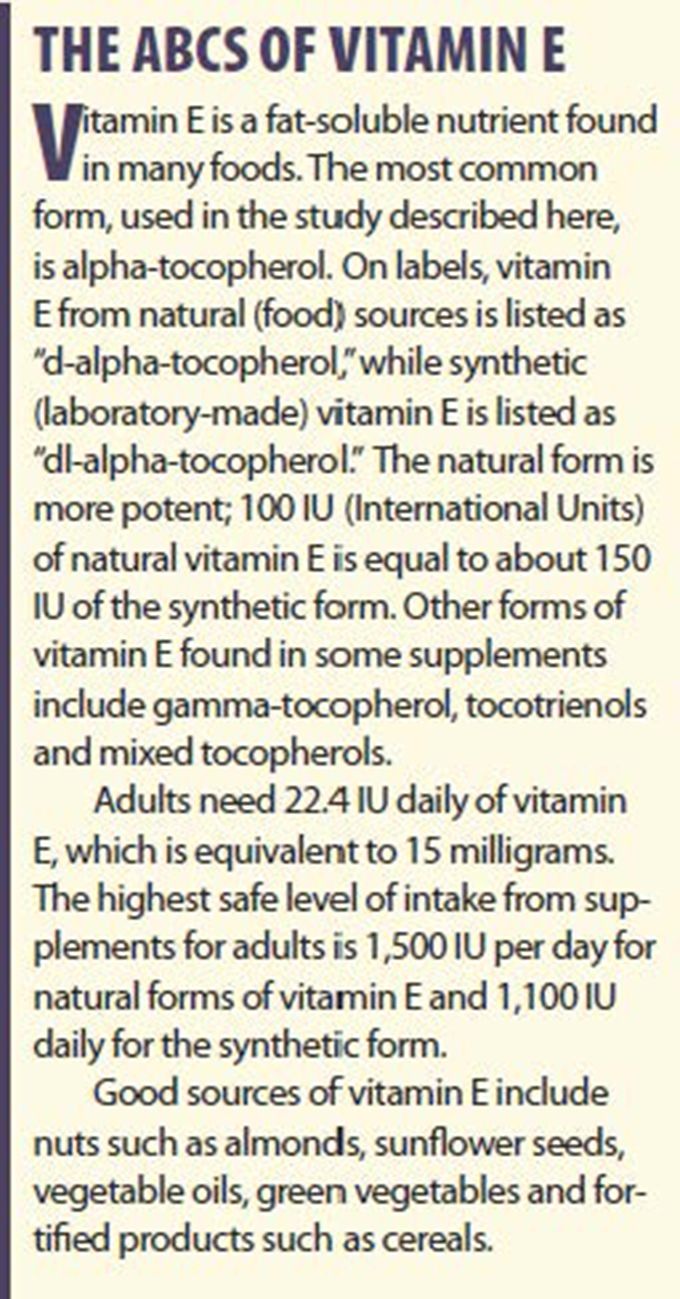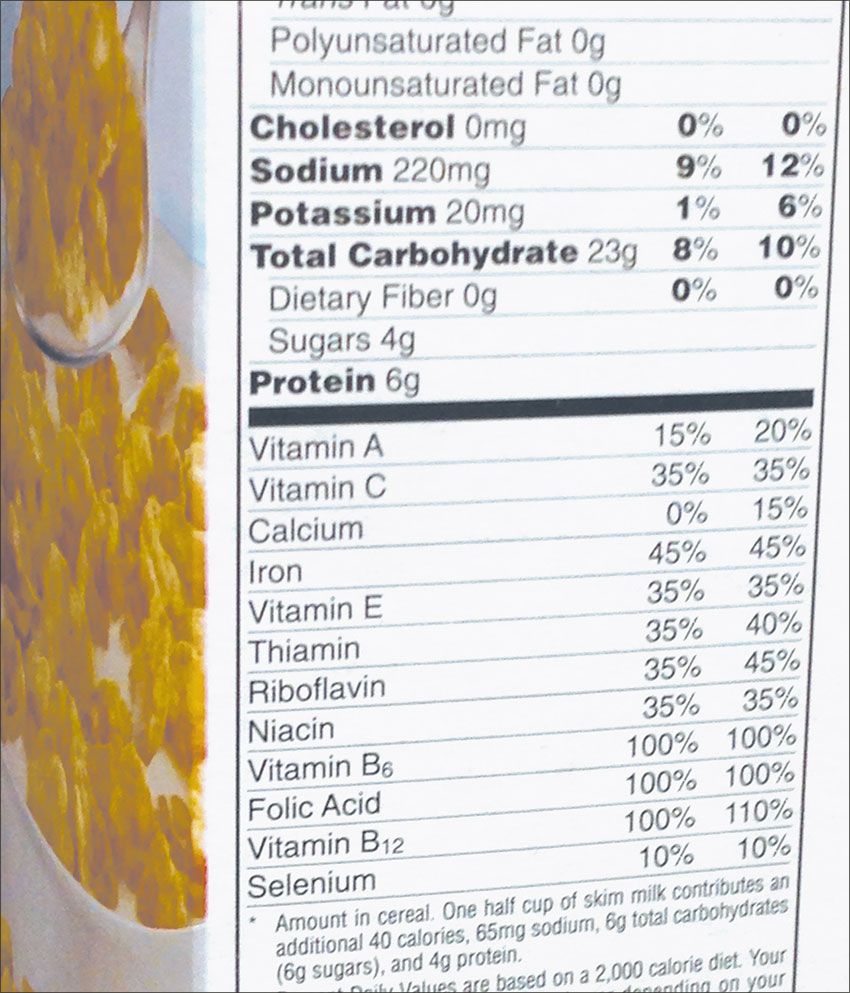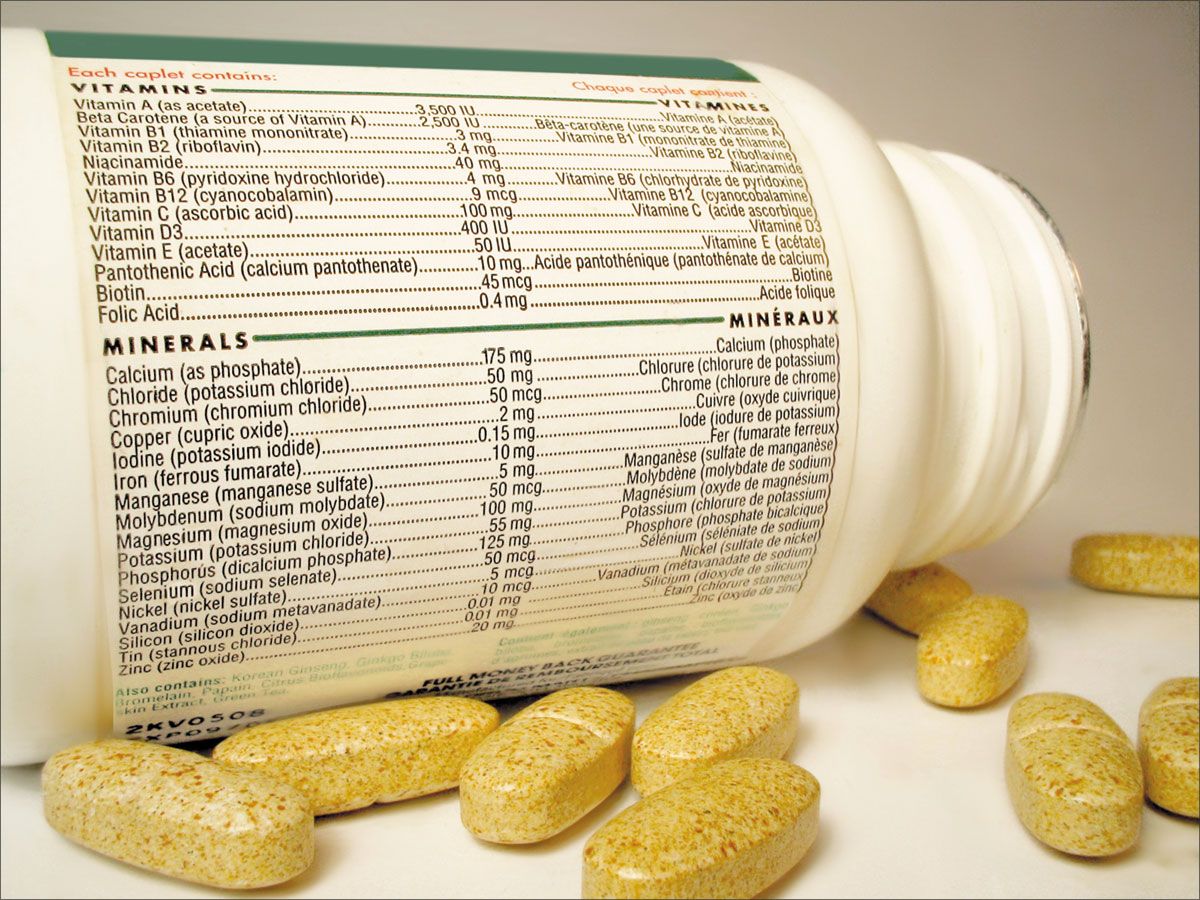Q. What are the pros and cons of traditional modes of making yogurt, especially...
Q. What are the pros and cons of traditional modes of making yogurt, especially Greek yogurt?
How Safe Are So-Called Dietary Supplements?
If you turn to herbal or botanical treatments or other alternative products marketed as dietary supplements to counter chronic conditions or boost your well-being, recent headlines might make you think twice before reaching for that pill bottle. Just in the past 12 months, regulators have warned of dangers from unlabeled pharmaceutical ingredients in an arthritis product and thyroid hormones in energy-boosting pills. Medical experts have reported an alarming increase in liver damage linked to weight-loss and fat-burning products.
What You Need to Know About Vitamin E and Alzheimers
Do recent hopeful headlines about vitamin E and Alzheimers disease mean you should run out and buy vitamin E supplements? Not unless you or a loved one already has mild to moderate Alzheimers-and even then the experts are split. The latest findings, from a study of 613 mostly male veterans at 14 VA hospitals across the country, focused on slowing the progression of the disease, not preventing it in the first place.
New Reasons to Make Sure Youre Getting Enough B12
Already a concern for older adults who lack adequate stomach acid to extract natural vitamin B12 from food, B12 deficiency may be more widespread than previously thought. The largest study to date of the effects of popular heartburn and ulcer medications on the risk of vitamin B12 deficiency reports a potentially serious problem. The study found patients who took the most popular acid-suppressing drugs, called proton-pump inhibitors or PPIs, for more than two years were 65% more likely to be deficient in vitamin B12.
Are You Really Benefiting from Your Multivitamins?
Youve seen the TV commercials. A daily multivitamin supports heart and breast health, boosts your immune system and protects your eyes. A smiling couple feel pretty darned smart after learning that a study showing multivitamins reduce cancer risk used the very brand shes been making him take.
New Questions About Benefits from Vitamin D Beyond Bones
If youve been popping vitamin D supplements for benefits beyond bone health-such as preventing heart disease, cancer or diabetes-its too soon to know if those pills are really doing you any good. Thats the lesson, experts say, from a sweeping new review of 290 observational studies and 172 randomized trials of vitamin D, chronic disease and mortality. Although vitamin D deficiency was associated with a variety of health problems in the observational studies, the trials in which participants were actually given extra vitamin D failed to prove a benefit.
Vitamin D Pills No Help Against Colds and Flu
Dont count on extra vitamin D to get you through cold and flu season sniffle-free. Results from a large new clinical trial show no significant difference in upper respiratory tract infections between people randomly assigned to vitamin D supplements and those getting a placebo. The study, published in Clinical Infectious Diseases, also found no benefit from calcium supplements, either in duration of infection or severity of symptoms. The 759 generally healthy participants, ages 45-75, received either 1,000 IU of vitamin D, 1,200 milligrams of calcium, vitamin D plus calcium, or a placebo daily. Their days of illness and symptom severity were tracked over four winters.
Q. The vitamin D supplement I take also contains calcium carbonate, cellulose gel, maltodextrin,...
A. Bess Dawson-Hughes, MD, director of Tufts HNRCA Bone Metabolism Laboratory, answers: The amount of calcium present is very small and so not very consequential. The other ingredients have negligible nutritional value, are commonly used, and I know of no evidence that they are unsafe.…
Q. Im thinking about taking a vitamin A supplement, but am confused by the...
If youre eating a balanced diet and have no special health concerns, you probably dont need extra vitamin A of any kind. According to the Office of Dietary Supplements of the National Institutes of Health, Vitamin A is available in multivitamins and as a stand-alone supplement, often in the form of retinyl acetate or retinyl palmitate [preformed vitamin A].
Confusing Labels Cause Food Waste
Is your household throwing away hundreds of dollars worth of usable food every year? Thats the conclusion of a new report by the Natural Resources Defense Council and Harvard Food Law and Policy Clinic, which warns that $165 billion of edible food is tossed in the trash annually and 40% of US food production never gets eaten. The leading culprit? Confusing food date labels, according to the report.






























